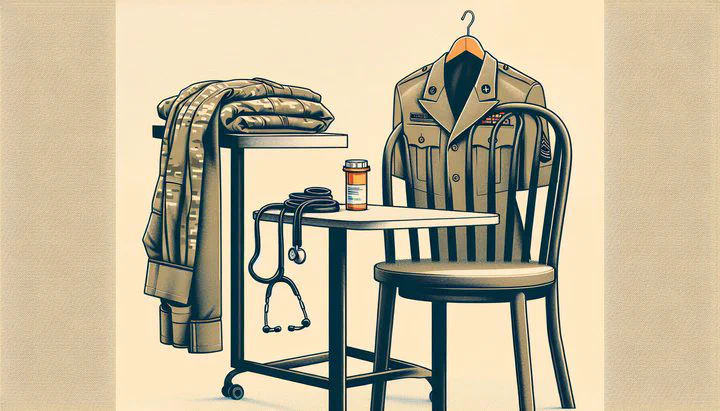Stopping Therapy and Medical Clearance for Military

Understanding Medical Clearance in the Military
Medical clearance is a key part of military life. It makes sure you are healthy and ready to do your job. But what does it mean to get medical clearance? It’s when doctors check your health to see if you’re fit to serve. This is important because military tasks can be tough, and being healthy helps keep you and your team safe.
To start getting cleared by medical professionals, you’ll go through several checks. These include physical exams and mental health assessments. If you have a condition like anxiety, doctors will decide if you can still serve or need treatment first.
Sometimes, this process can be tricky, especially if you’ve recently stopped therapy or have ongoing health issues. It’s important to be honest with your healthcare providers. They are there to help you get the support you need and keep you mission-ready. Remember, being proactive about your health helps you stay on top of your military duties.
Diagnosis for Generalized Anxiety Disorder
Understanding generalized anxiety disorder (GAD) is important, especially for military personnel. GAD is when you feel very worried about many things in life, even when there’s no big reason. In the military, you need to manage stress, but too much anxiety can make it hard to do your job.
Diagnosing generalized anxiety disorder in the military involves talking with a healthcare provider. They will ask about your symptoms and how they affect your life. Sometimes, they use questionnaires to understand better. It’s important to be honest, as this helps in making a correct diagnosis.
A diagnosis for generalized anxiety disorder can affect your duties and medical clearance. You might need therapy or prescribed medication to manage symptoms. This doesn’t mean you can’t serve, but you’ll need to work with your healthcare team to stay ready for your role.
Managing GAD while serving is possible with the right support. Follow your treatment plan, whether it includes therapy or medication. Regular check-ins with your provider can help adjust your plan and keep anxiety under control. Remember, seeking help shows strength.
How Prescribed Medication Influences Medical Clearance
When you’re dealing with anxiety, prescribed medication can help manage your symptoms. But how does it affect your medical clearance in the military?
Common medications for anxiety include SSRIs like sertraline and fluoxetine, and benzodiazepines like lorazepam. These help by balancing brain chemicals. During getting cleared by medical professionals, doctors review your medications to ensure they won’t impact your duties.
The assessment involves checking how medications affect your performance. Some can cause drowsiness, which might not be good for certain tasks. Your healthcare provider will work with you to find the best medication strategy.
If you face issues with medication, talk to your healthcare team. They can adjust your treatment or find alternatives. Taking prescribed medication is key to maintaining your health, which is crucial for both your well-being and military role.
Impacts of Stopping Therapy
Deciding to stop therapy is a big choice in the military. It affects your medical clearance and well-being. You might consider stopping therapy if you feel better or want to handle things alone, but it’s important to think about the impacts.
When you have stopped therapy, your mental health might change. Therapy helps manage stress and anxiety. Without it, these could return or worsen, affecting your readiness and performance. It’s essential to have a plan to keep your mental health stable.
Stopping therapy can also influence your medical clearance. Medical professionals might need to check your mental health to ensure stability before clearing you for duty. Be upfront about stopping therapy to help them assist you in staying ready.
If you’re thinking about stopping therapy, talk to your therapist or provider first. They can guide you on safely transitioning and suggest ways to maintain your mental health.
Support and Resources for Military Personnel
Navigating mental health challenges and medical clearance in the military can be tough, but you’re not alone. Many resources and support systems are designed to help you through these processes.
One valuable resource is the Military OneSource program, offering free, confidential support to service members and their families. They provide counseling services, mental health resources, and guidance on stopping therapy and medical clearance for military.
Your unit’s medical and mental health team is also key. They understand military life challenges and can help with everything from prescribed medication management to preparing for getting cleared by medical professionals. Reach out to them with any questions about your health or clearance status.
Connecting with community support groups provides comfort and advice from others who faced similar situations. Online forums and local veteran organizations offer networks where you can share experiences and learn practical tips.
Remember, seeking help is a sign of strength. Use the available resources and advocate for your health. Taking care of your mental health ensures you’re ready for your duties and supports your well-being. Your commitment to maintaining a healthy mind is vital to success in the military and beyond.